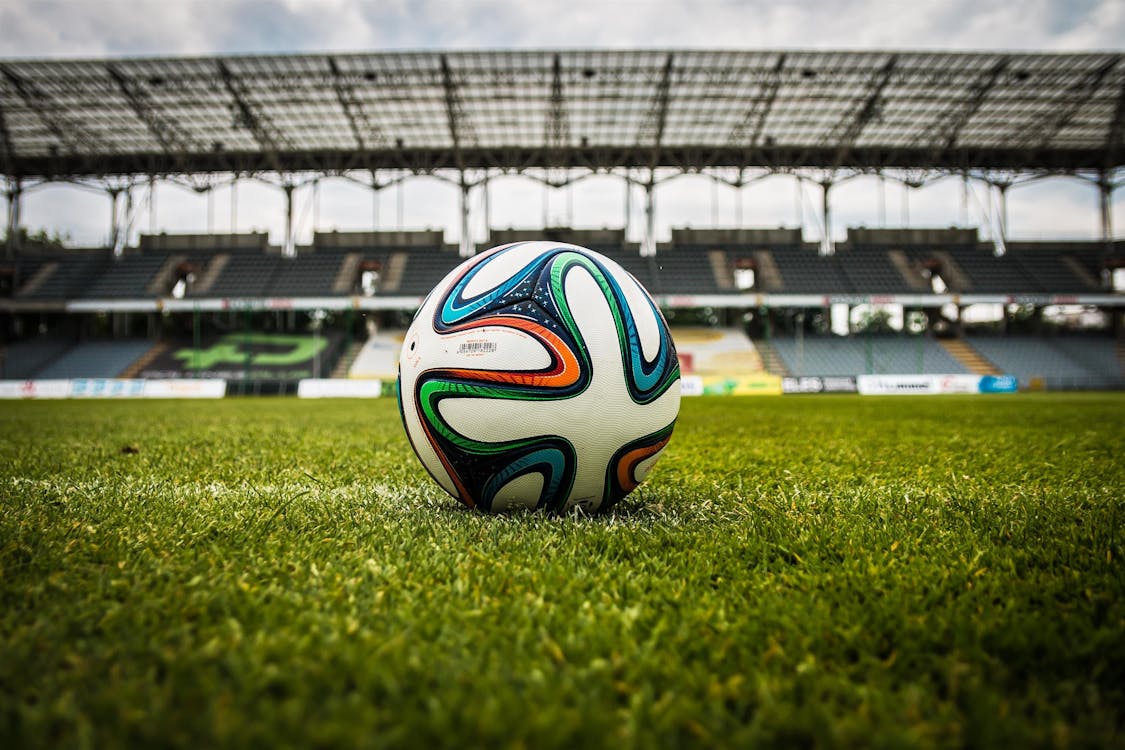Football, known as soccer in some parts of the world, stands unrivaled as the planet's most popular sport. From dusty village pitches to state-of-the-art stadiums holding 100,000 spectators, the game transcends borders, languages, and cultures. With an estimated 4 billion fans worldwide, football is more than just a sport—it's a universal language that brings people together in celebration, rivalry, and shared passion.
What makes football so special? Perhaps it's the simplicity of the game—all you need is a ball and an open space. Maybe it's the dramatic narratives that unfold over 90 minutes, where underdogs can triumph and heroes are made in moments. Or it could be the rich history, legendary players, and unforgettable matches that have woven football into the cultural fabric of nations across the globe.
The Evolution of Modern Football
Football's journey from informal village games to the sophisticated global phenomenon we know today is a fascinating story of evolution and adaptation. While various forms of football have been played for centuries, the modern game began taking shape in 19th century England when standardized rules were established.
The formation of The Football Association in 1863 marked a pivotal moment, creating unified rules that allowed the sport to spread systematically. From there, football expanded rapidly across Europe and South America, with each region developing distinctive playing styles and football cultures that persist today.
The 20th century saw football become truly global. International competitions like the FIFA World Cup, first held in 1930, captured imaginations worldwide and established football as a legitimate pathway to national glory and pride. According to comprehensive football history, the sport's governance and structure have continually evolved to meet the demands of professionalization and globalization.
Today's game bears similarities to its origins while incorporating modern innovations. Video Assistant Referee (VAR) technology, advanced analytics, sports science, and tactical sophistication have transformed how football is played, coached, and experienced—yet the fundamental appeal remains unchanged.
Understanding Football Positions and Tactics
One of football's beautiful complexities lies in how eleven players must work together as a cohesive unit. Each position demands specific skills, and successful teams blend individual talents into coordinated tactical systems.
Goalkeeper: The last line of defense and often a team's most important player. Modern goalkeepers must not only make saves but also distribute the ball effectively and occasionally act as sweepers behind the defensive line.
Defenders: Center-backs provide defensive solidity and aerial dominance, while full-backs increasingly contribute to attacks down the flanks. The best defenders combine physical strength, positioning intelligence, and reading of the game.
Midfielders: The engine room where matches are often won or lost. Defensive midfielders shield the defense and break up opposition attacks. Central midfielders control tempo and distribution. Attacking midfielders create chances through vision, passing, and dribbling.
Forwards: Tasked with scoring goals, forwards come in various types—target men who hold up play and bring teammates into action, poachers who specialize in finishing chances, and false nines who drop deep to create space and confusion.
Tactical approaches have evolved dramatically. The rigid formations of the past have given way to fluid systems where players interchange positions constantly. Pressing strategies, counter-attacking styles, possession-based philosophies—each approach has merits, and top managers adapt tactics to their squad strengths and opposition weaknesses.
The Greatest Competitions in Football

Football's competitive structure provides drama at every level, from local leagues to international tournaments that capture global attention. Understanding these competitions helps appreciate the sport's full scope and significance.
- FIFA World Cup: The pinnacle of international football, held every four years. Nations compete through lengthy qualification processes for the chance to compete for football's greatest prize. The tournament creates legends, delivers unforgettable moments, and unites or divides entire countries based on results.
- UEFA Champions League: Europe's premier club competition brings together the continent's best teams. The knockout format creates dramatic two-legged ties where anything can happen, and the quality of football often represents the sport's highest level.
- Domestic Leagues: National competitions like the English Premier League, Spanish La Liga, German Bundesliga, Italian Serie A, and French Ligue 1 provide week-to-week drama and fierce local rivalries. Each league has distinctive characteristics that reflect broader cultural differences.
- Copa America and African Cup of Nations: Regional championships that showcase South American flair and African talent respectively, producing memorable tournaments and expanding football's global narrative beyond European dominance.
- Women's Football: Growing rapidly in popularity and quality, women's competitions like the FIFA Women's World Cup and UEFA Women's Champions League are attracting increasing attention and investment, rightfully earning recognition for outstanding talent and exciting football.
Legendary Players Who Defined Eras
Football's history is illuminated by extraordinary individuals whose talent, dedication, and achievements elevated them to legendary status. While countless players have graced the game, certain names stand above all others in the collective memory of football fans.
Pelé revolutionized what was possible on a football pitch, combining athleticism, technical skill, and goal-scoring prowess in ways never seen before. His three World Cup victories with Brazil established a standard of international success that remains unmatched.
Diego Maradona possessed magical abilities that defied logic and physics. His performances in the 1986 World Cup, particularly against England, showcased both controversy and genius, cementing his status as perhaps the most naturally gifted player ever.
The modern era has been dominated by Lionel Messi and Cristiano Ronaldo, whose sustained excellence over nearly two decades redefined expectations of consistency and longevity. Their rivalry pushed both to unprecedented heights, producing goal-scoring records that may never be broken.
Beyond individual brilliance, these legends inspired generations of young players who watched them and dreamed of emulating their achievements. They remind us that while football is a team sport, exceptional individuals can still make decisive differences.
The Physical and Mental Demands of Professional Football
The modern professional footballer is an elite athlete operating at the absolute limits of human physical and mental capacity. Understanding these demands provides appreciation for what top players achieve week after week.
Physical conditioning has reached new levels of sophistication. Players regularly cover 10-12 kilometers per match, combining steady jogging with explosive sprints that tax both aerobic and anaerobic systems. Strength training, flexibility work, and injury prevention protocols consume hours beyond actual playing time.
Nutrition and recovery science have become crucial competitive advantages. Elite clubs employ teams of specialists who optimize every aspect of player preparation, from sleep patterns to precise dietary requirements. The margin between peak performance and injury is razor-thin, requiring constant monitoring and adjustment.
Mental demands are equally challenging. The pressure to perform before massive audiences, handle criticism from media and fans, maintain focus across long seasons, and make split-second decisions under stress requires psychological resilience that not everyone possesses.
Tactical intelligence separates good players from great ones. Understanding positioning, reading patterns of play, anticipating opponent movements—these cognitive skills developed through thousands of hours of practice and analysis become second nature to elite professionals.
Football's Cultural Impact and Global Reach

Football's influence extends far beyond the pitch, shaping cultures, economies, and social movements around the world. The sport serves as a lens through which we can understand broader societal dynamics and human behavior.
National identity is often expressed through football. When countries compete internationally, the matches become symbolic battles where historic rivalries, political tensions, and cultural pride manifest through the game. Victory brings collective joy; defeat causes national mourning.
Economically, football has become a multi-billion dollar industry. Transfer fees, broadcasting rights, sponsorship deals, and merchandise sales generate enormous revenues. Top clubs operate as global brands, while local clubs remain vital community institutions that provide identity and purpose.
Social change often finds expression through football. Players increasingly use their platforms to advocate for racial justice, environmental protection, and human rights. The sport's global visibility makes it powerful for raising awareness and driving conversations about important issues.
For insights into football's broader cultural significance, this resource on football culture provides valuable perspectives on the sport's social dimensions.
Getting Started: How to Appreciate Football More Deeply
Whether you're new to football or looking to deepen your understanding, approaching the game with intentionality enhances enjoyment and appreciation. Here are strategies for getting more from football:
Choose a Team: Having a rooting interest transforms passive viewing into emotional investment. Pick a club that resonates with you—perhaps based on playing style, history, or personal connection—and follow their journey through seasons of triumph and disappointment.
Learn Tactical Concepts: Understanding formations, pressing strategies, and positional play helps you see beyond individual moments to appreciate the chess match between managers and the coordinated movements that create chances.
Study History: Football's rich past provides context for present events. Learning about legendary matches, iconic players, and historic rivalries deepens appreciation for the sport's traditions and narratives.
Watch Different Leagues: Each major league has distinctive characteristics. The Premier League's intensity differs from La Liga's technical emphasis and Serie A's tactical sophistication. Exploring variety expands your football education.
Engage with Community: Football is fundamentally social. Discussing matches with friends, joining supporter groups, or participating in online communities enhances the experience through shared passion and diverse perspectives.
Conclusion: Why Football Matters
Football's enduring appeal stems from its perfect balance of simplicity and complexity, individual brilliance and collective effort, tradition and innovation. It's a sport where the underdog can triumph, where moments of magic can change everything, and where passion flows freely regardless of wealth or status.
In a divided world, football provides common ground. It creates moments of pure joy, heartbreaking disappointment, and everything in between. It teaches lessons about teamwork, perseverance, and dealing with both success and failure. It connects generations as parents share their love of the game with children who develop their own football passions.
Whether you're watching at a packed stadium, in a neighborhood pub, or on your living room couch, football offers an escape from daily concerns and an entry into a world where everything matters intensely for 90 minutes. That's the beautiful game's greatest gift—the ability to make us care deeply, feel intensely, and believe that anything is possible.
The next match is always just around the corner, bringing new possibilities for drama, excellence, and unforgettable moments. That's why billions of us can't look away. That's why football will always be the world's game.
So pick your team, learn the players, understand the tactics, and immerse yourself in football's endless narratives. You're joining a global community united by love for the beautiful game. Welcome to football—you're going to love it here.

No comments:
Post a Comment